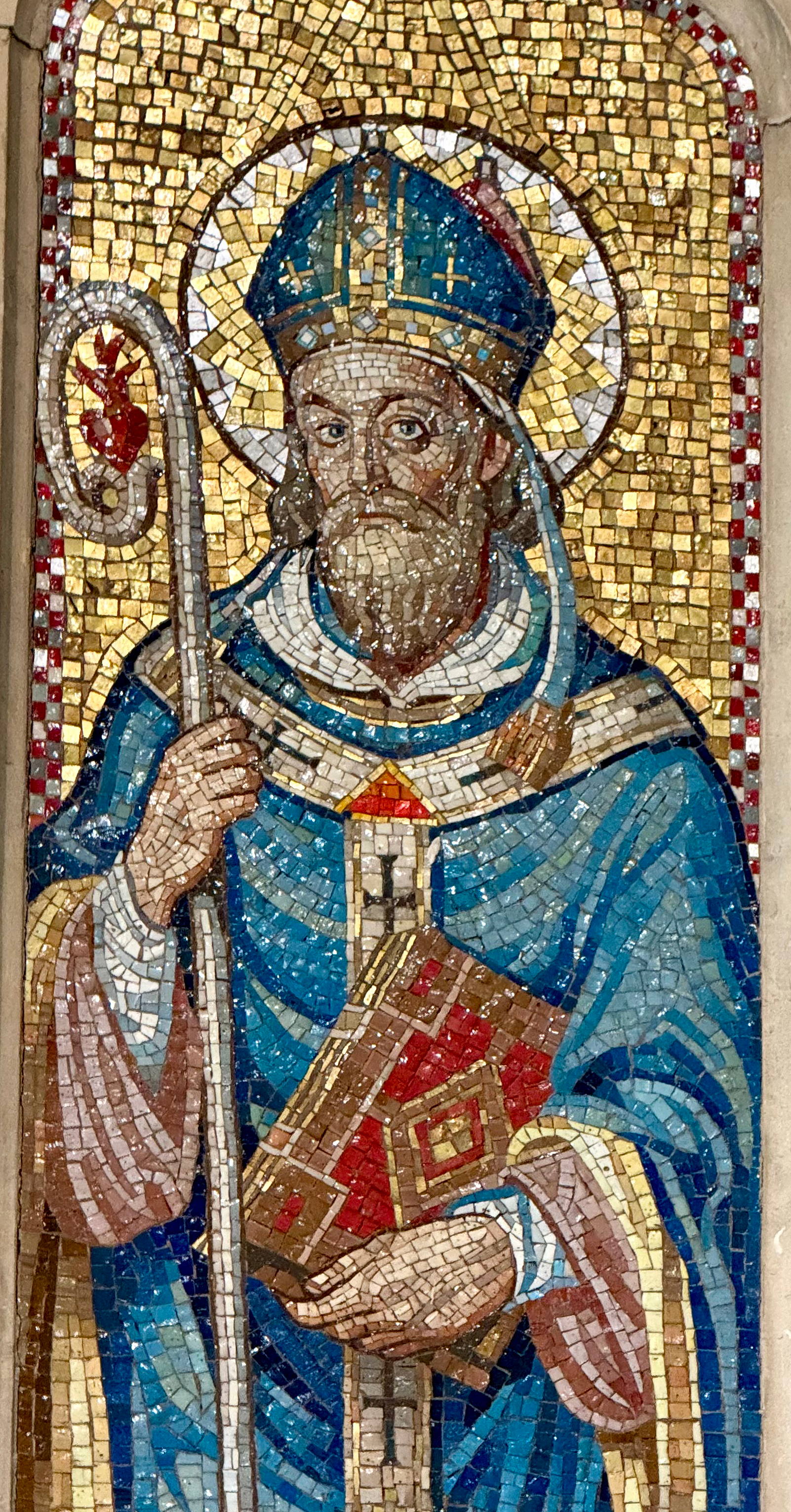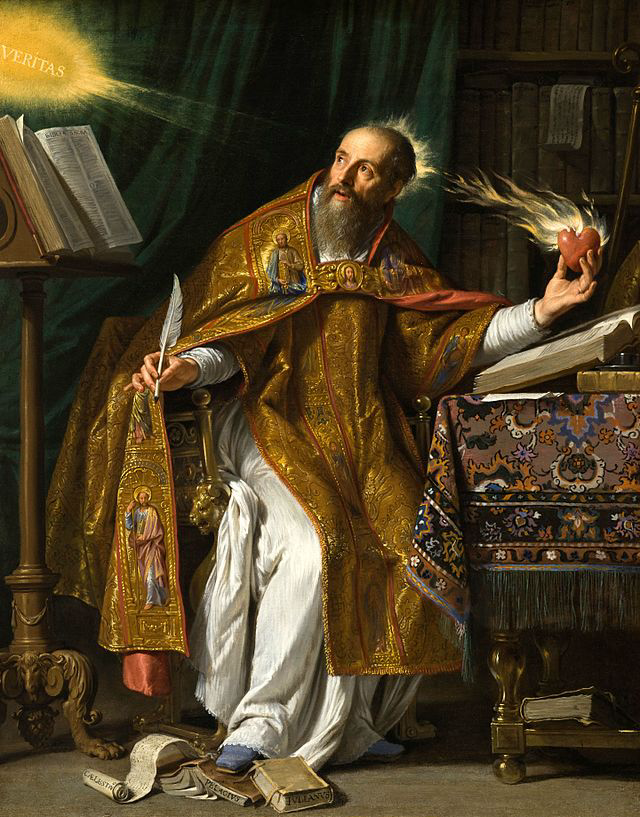Report on St. Augustine
Introduction
St. Augustine of Hippo (354–430 AD) is widely regarded as one of the most influential theologians and philosophers in the history of Christianity. His writings, particularly on theology, grace, and the nature of the Church, have shaped Christian doctrine for centuries. As a bishop, a scholar, and a philosopher, Augustine’s contributions extend beyond religious life into the intellectual tradition of the Western world. His works, including Confessions and The City of God, remain central to Christian thought and continue to be studied for their theological depth, philosophical insight, and spiritual significance.
Early Life and Conversion
Augustine was born on November 13, 354, in Thagaste (modern-day Souk Ahras, Algeria) in North Africa. He was the son of Patricius, a pagan Roman official, and Monica, a devout Christian. Despite his mother’s efforts to raise him in the faith, Augustine led a tumultuous early life marked by rebellion and a search for meaning. He pursued studies in rhetoric and philosophy, first in Carthage and later in Rome, which led him into various intellectual and spiritual conflicts.
In his early adulthood, Augustine embraced Manichaeism, a dualistic religious philosophy that saw the world as a battleground between the forces of good and evil. Later, he was introduced to Neoplatonism, which also influenced his eventual conversion to Christianity. His mother, Monica, continued to pray for his conversion, and it was through the preaching of St. Ambrose, the Bishop of Milan, that Augustine’s heart was finally opened to the Christian faith.
In 386 AD, after a profound spiritual crisis, Augustine experienced a dramatic conversion, famously described in his Confessions. He was baptized by Ambrose in 387 AD, marking a pivotal moment in his life.
Theological Contributions
Augustine’s theological writings have had a profound and lasting impact on Christian doctrine. Some of his key theological contributions include his teachings on original sin, grace, salvation, the nature of the Church, and the relationship between faith and reason.
1.Original Sin and Human Nature: One of Augustine’s most influential doctrines was his understanding of original sin. Drawing on the biblical account of Adam and Eve’s fall in Genesis, Augustine taught that all humans inherit a fallen nature due to Adam’s original sin. This corrupted human nature made salvation impossible through human effort alone. Augustine’s doctrine of original sin became a central tenet of Western Christianity, profoundly influencing the Catholic Church, Protestant Reformers like Martin Luther, and many other Christian thinkers.
2.Grace and Salvation: Augustine is also well-known for his teachings on grace. He argued that salvation could not be achieved through human will or effort but only through God’s unmerited grace. His views on grace were developed in opposition to the Pelagians, a group that denied the doctrine of original sin and believed in the possibility of human beings achieving salvation through their own efforts. Augustine’s doctrine of grace emphasized the necessity of God’s initiative in the salvation of humanity, which shaped Christian thinking on the nature of divine grace for centuries.
3.The Church and the Sacraments: Augustine made significant contributions to the understanding of the Church and its role in salvation. He viewed the Church as the visible community of believers, both the “Church triumphant” in heaven and the “Church militant” on earth. His writings on the sacraments emphasized the importance of the Church’s authority in administering the sacraments, which were essential for salvation. Augustine also defended the role of bishops and the necessity of the Church in the administration of God’s grace.
4.Faith and Reason: Augustine is considered one of the earliest Christian thinkers to develop a sophisticated integration of faith and reason. His intellectual journey from skepticism to faith is detailed in his Confessions, and he is widely regarded as one of the first to explore the relationship between philosophy and theology. His writings, particularly in The City of God, offer a vision of a Christian philosophy of history and the relationship between the temporal and the eternal, blending classical thought with Christian doctrine.
The City of God
One of Augustine’s most important works is The City of God, written in response to the fall of Rome in 410 AD, which many people saw as a punishment for abandoning traditional Roman paganism in favor of Christianity. In this work, Augustine contrasts the “City of God” (representing the Church and the eternal heavenly kingdom) with the “City of Man” (representing earthly political institutions). Augustine argues that the Church, as the City of God, transcends the political and social upheavals of the temporal world. The work has been influential not only in Christian theology but also in political philosophy, as it discusses the nature of justice, the role of the state, and the relationship between religion and politics.
Life as Bishop of Hippo
After his conversion, Augustine returned to North Africa, where he became a priest in 391 AD and later the Bishop of Hippo (present-day Annaba, Algeria) in 396 AD. As bishop, Augustine was an active pastor and theologian, overseeing the local Christian community and engaging in debates on theological and doctrinal issues. He wrote extensively, defending the Christian faith against heresies such as Donatism (which argued that the validity of the sacraments depended on the purity of the minister) and Pelagianism (which denied original sin and emphasized human free will in salvation).
Augustine’s pastoral work was marked by his deep concern for the moral and spiritual welfare of his flock. His writings, sermons, and letters reflect a pastoral care that sought to guide Christians in their daily lives and to provide answers to their theological questions. His close relationship with his mother, Monica, who had prayed for his conversion, also became a source of reflection in his spiritual writings.
Influence on Christian Thought
Augustine’s influence on Christian thought cannot be overstated. His teachings formed the foundation for much of Western Christian theology, particularly in the areas of sin, grace, and salvation. His works were widely read throughout the Middle Ages, and his ideas were adopted and developed by later theologians, including Thomas Aquinas, Martin Luther, and John Calvin. His understanding of human nature, divine grace, and the role of the Church has had a lasting impact on both Catholic and Protestant traditions.
In addition to his theological impact, Augustine’s philosophical writings, particularly on ethics and the nature of the human soul, have shaped Western philosophy. His integration of Neoplatonism and Christianity set the stage for later Christian philosophers and helped reconcile Greek philosophy with Christian doctrine.
Writings and Legacy
Augustine’s writings are extensive, with his most famous works being Confessions, The City of God, and his Enchiridion (Handbook on Faith, Hope, and Love). These texts remain essential reading for those interested in Christian theology, philosophy, and spirituality. Confessions, his spiritual autobiography, is a profound reflection on the grace of God in his life and a seminal work in the genre of personal spiritual writing.
Augustine was declared a Doctor of the Church by Pope Boniface VIII in 1298 and is revered as a saint by both the Roman Catholic Church and the Eastern Orthodox Church. His feast day is celebrated on August 28, the anniversary of his death.
Conclusion
St. Augustine’s life and works remain central to Christian thought and Western philosophy. His writings on grace, original sin, salvation, and the relationship between the earthly and the heavenly continue to shape the way Christians understand the world and their place in it. His intellectual journey from a life of sin to one of profound faith serves as an example of the transformative power of God’s grace. Augustine’s legacy is not only in his theological and philosophical contributions but also in his pastoral care, his influence on Christian liturgy, and his role in shaping the future of the Church. St. Augustine remains a towering figure in the history of Christianity and an enduring source of spiritual and intellectual insight.






